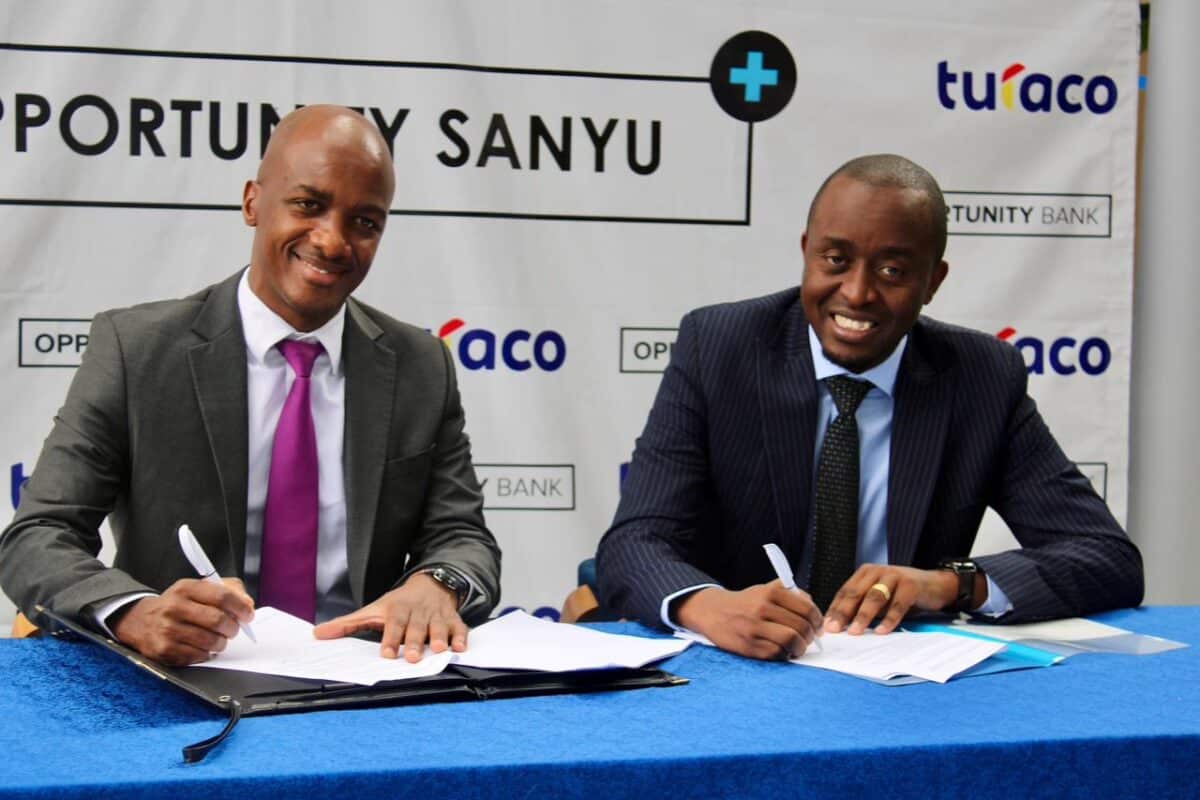Opportunity Bank and Turaco Partner to Embed Health Insurance into Savings Accounts with ‘Opportunity Sanyu’
Affordable microinsurance now available to Ugandan saversprotecting families from medical and burial expenses.
KAMPALA, 5th June 2025 – Opportunity Bank Uganda, in partnership with Turaco Microinsurance, has launched Opportunity Sanyu an affordable health and life insurance product now embedded directly into Opportunity Bank’s savings accounts. The product is designed to protect Ugandan families from the financial stress of hospital visits and bereavement without the hassle of traditional insurance sign-ups.
The product name ‘Sanyu’, which means “joy” in Luganda, represents the peace of mind that comes when a family’s savings are protected even during life’s hardest moments.
A New Chapter for Financial Protection in Uganda
Over 60% of Ugandans rely on savings or borrowing to pay for healthcare, often derailing long-term plans like school fees or business investments. Opportunity Sanyu tackles this head-on by making microinsurance accessible, automatic, and truly affordable, starting at just UGX 2,000 per month.
What Customers Get:
- Hospital Cash Benefit: UGX 200,000 to UGX 1 million per year
- Funeral Cover: UGX 500,000 to UGX 2 million
- Effortless Access: Embedded into savings accounts, just give consent & the cover activates
- Hassle-Free: Premiums deducted automatically, no paperwork or separate sign-ups
“Our customers’ savings are their future,” said Owen Amanya, CEO of Opportunity Bank Uganda. “But one health emergency can take it all away. With Opportunity Sanyu, we’re helping our customers stay on track and build resilience through banking that truly protects.”
Fast Claims. Real Relief.
Turaco’s tech-driven systems ensure fast, paper-light claims, making insurance truly work when it’s needed most. Similawo Resty, a Turaco customer, shared: “When I was admitted to the hospital, I feared for my health and how I’d pay. Turaco came through for me. I could settle my bill and repay those who helped. I’m so grateful.”
“Opportunity Sanyu is what inclusive insurance should look like embedded, simple, and ready when emergencies arise,” said Cedrick Todwell, Director of Business Development at Turaco. “Together with Opportunity Bank, we’re bringing dignity and financial stability to households across Uganda.”
Since 2019, Turaco has partnered with banks, fintechs, and mobile operators to insure over 4 million people across Uganda, Kenya, Nigeria, and Ghana with more than 1 million lives covered in Uganda alone.
Opportunity Sanyu is now available to Opportunity Bank customers nationwide. Anyone with a deposit account can visit their nearest branch to activate coverage and join the movement towards secure, protected savings.
⸻






